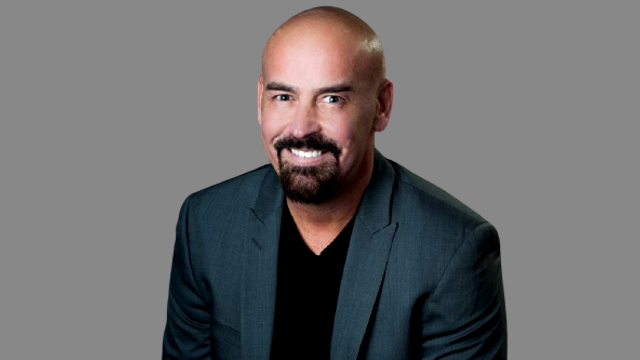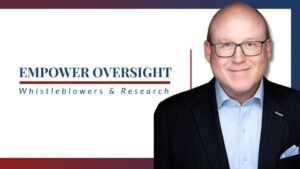Here is my latest interview with Attorney John Deaton. We discuss the latest updates with the SEC Ripple XRP lawsuit, Amicus Briefs from Coinbase and other industry leaders, Bill Hinman documents, SEC and Gary Gensler accountability with Congress, and Grayscale Bitcoin Spot ETF lawsuit.
Transcript
Welcome back to the Thinking Crypto podcast, your home for cryptocurrency news and interviews. With me today is attorney John Deaton, who’s no stranger to the show, we’re gonna talk all things SEC, Ripple, and even some Grayscale. John, great to have you back on the show.
- Tony, as always, thank you for having me, brother, I appreciate it.
- John, things have escalated, if that’s the right word. There are loads of amicus briefs coming in in the Ripple lawsuit, let’s start with that. We got your amicus brief, we have one from Coinbase, the Blockchain Association, the Digital Chamber of Commerce, what’s your take on all this?
- Well, my take is, you’re right, escalate is a great word, and I think we’re at 11 or even 12, and in fact, today the SEC sent a letter to the judge asking for the extensions to be moved from the 15th until the end of the month, two-week, basically, extension, so that, in an extra 10 pages in their reply brief, so that they can address all of these amicus briefs, and ripple’s not objecting to that, so everything’s gonna get pushed two weeks, is not the end of the world so people shouldn’t get upset, and they’ll be able to address this. And so she also, not she, but the SEC also asked the judge and Ripple agreed, that any other amicus must be filed by November 11th, right? So if there’s anybody else out there that plans on filing an amicus brief, you’re probably gonna have, she’s gonna be a cut, a deadline, right? She’s gonna cut it off around the November 11th. So ,listen, I think it’s great, right?
- Yeah.
- A lot of people, and I love these people, a lot of people in the XRP community have said things like, “Deaton told you, guys,” you know, “two years ago that this was against the entire crypto market,” and I love those people, they’re great to me, and there’s been so support of me, and I say to them, “Welcome, we want a united front against the SEC because the SEC has declared war on crypto.” I think basically, Tony, what happened is, what you and I, you and I did an, you know, you interviewed me a year and a half ago, and we discussed this, and you were on board, you were one of the other vocal people in the community who said this. You said this lawsuit, because of the way the SEC has alleged it, because they went after the token itself. If Ripple is deemed a security, then all alt coins, and we even said ETH. You own ETH, I own ETH, and we said, “Look, this also implicates Ethereum.”
- Right.
- And a lot of people ignored that, Tony, because they let the noise, I call it the noise of the complaint, where they said things like, “The Ripple founders tried to enrich themselves. Brad Garlinghouse said he was long XRP while he was dumping XRP.” Like they used that kinda language, even though they didn’t plead fraud, to kinda stir up people, and divide, and conquer, right? And you and I and others were like, “Let’s not, we’re not gonna fall for that,” and this is about crypto, and I think the pivotal point for the community is, in fact, when Gary Gensler would not say Ethereum is not a security, let’s just all be honest about it, right? That’s how I look at it, and when he said proof-of-stake, the merge implicated the securities laws in the United States, and he was only comfortable saying Bitcoin’s a commodity, that’s when everybody said, “Oh, okay, this really is a war on all of crypto-
- Yeah.
- And therefore we have to fight it.” And it doesn’t matter if somebody is six months late to the fight, to me, or if they’re a year late, or they’re two years late, come on in, let’s join together, let’s end the tribalism, and let’s fight the SEC and fight this government overreach, and so I’m glad the digital Chamber of Commerce filed, I’m glad the blockchain filed, and they all make points that are important, right? And I’ll tell you another thing, I was very, very relieved that they were, because I had 30 pages, right? In my brief, I can’t say everything I wanna say.
- Sure.
- And so, because other people were able to make points, I could focus the XRP holder brief on what was important for us, and so by them doing that, that also alleviated some of the burden on me, and I appreciate you saying in my brief, but it’s your brief too.
- That’s right.
- Okay? Because the people who haven’t read it need to know that an important point of the XRP holder amicus brief is the Thinking Crypto YouTube channel interview of Commissioner Hester Peirce, because I point out that Hester Peirce said on your show that, at the SEC they tend to think of the token itself as the security and they ignore the offering, the circumstances surrounding the offering of the asset, and they do what she called a shorthand, right? A shorthand and just look at the token, well, in the brief I cite your interview of her, and I say that’s called an unconstitutional shortcut. You’re not allowed to just say the token itself and ignore 76 years of case law. So it’s your brief, it’s my brief, I cited materials that people in the XRP community, the sluice had uncovered, you know, the video of Gensler saying even Ripple deserves clarity, right? That’s in there, because I’m pointing out what this case really is, is a test case to try to regulate the secondary market, and that’s really what’s at stake here. So it’s our brief anyway.
- So, John, you know, as always, thank you for the work you’re doing on behalf of all the XRP holders, and as a result, also the rest of the crypto market, because you know what the SEC is doing in saying that all these tokens are securities, even the secondary market that, let’s say Ripple loses, right? That would apply to Cardano, and Algorand, and Solana, and all these other tokens, and I hold those other tokens as well, as both millions of other people, so there’s a lot of implications here.
- No, you’re right, because people need to understand the entire, this is what the SEC says. They say that because Ripple sold XRP for investment to some people, and because Ripple made statements or undertook efforts to develop a use case for XRP, that therefore that alone that they sold it for an investment and that they undertook some efforts, that that meets the Howey test, and that doesn’t, they even say to the judge that it meets the second and third prong of the Howey test as a matter of law without even doing an analysis, and so that means if that were to win, Tony, you’re right, because then all you’d have to say is, “Okay, has Charles Hoskinson done anything positive for Cardano? Has he said any statements about Cardano that are positive? Has he undertaken any efforts?” And then if there’s any kind of sell of Cardano, then all of a sudden they could argue the same thing. And people gotta understand that, when the secondary market, we don’t know who we’re buying it from, it’s just an exchange, right? And so how are you in a common enterprise with Ripple if you never heard of Ripple, you don’t know anything about Ripple, you don’t know anything about Brad Garlinghouse? And so yes, you could take, the Ethereum Foundation sold Ether, we all know that, they sold Ether at the height, Vitalik has stated that. Well, did the Ethereum Foundation undertake efforts to promote Ether? Yes. So the same test would apply. Ethereum is a security under that same test. ConsenSys supports Ether and promoted it, and sold it, it would meet the same test, and so you are 100% right that what we’re fighting, and I think that why you see so many entities coming on board is that they realize that this is a fight for all of crypto, not just XRP.
- Yeah, absolutely. So John, I wanna talk about the Coinbase amicus brief specifically, because there’s a lot to this, the backstory here, because Coinbase, and we talked about it in interviews in the past, their securities lawyers spoke to the SEC, the SEC said nothing, there was a lot of conversations back in 2017, 2018. Will Coinbase list XRP, is there a security issue? They went ahead and listed, and obviously they delisted when the lawsuit came about, and now they’re fighting on behalf of Ripple. What are your thoughts? It’s an interesting dynamic given the history.
- Well, it is, and you know, here’s the thing which your people note that may not be on top of this. In 2019, in January of 2019, and this is in our brief, Coinbase went to the SEC, they went to Hinman, they went to Valerie, right? They went to that part of the SEC and they said, “Listen, we have evaluated in our system, the same system that you all complimented, XRP today is not a security, and we’re gonna list it next month unless you say otherwise, because we’re gonna ask to do an IPO real soon, so we don’t wanna run afoul of the US securities laws or what the SEC thinks. Unless you say something, we’re going forward with XRP because it’s not a security,” and I can’t tell you what the SEC said, I can tell you what they didn’t say with a 100% certainty, they did not say XRP is a security.
- Right.
- Because Coinbase listed it on February 26th, 2019, and Tony, what I bring out to the judge in our brief, not only did Coinbase list XRP, they promoted the shit out of XRP.
- Yep.
- Excuse the French, but they were like, “USDC and XRP, move money internationally for free in seconds. We’re expanding Coinbase’s business with cross-border payments utilizing XRP and USDC.” That was Coinbase’s promotion-
- Right.
- And so I point out to the judge that XRP holders relied on Coinbase more than they relied on Ripple. You see that, you’re like, “Hey, that’s a big deal, let me buy some XRP,” right?
- Yeah.
- And so what’s interesting about your question is that the SEC didn’t get into that, right? They didn’t, and I don’t, I think they viewed it as, Ripple brought it up, Deaton’s definitely bringing it up in his brief, right? So there’s no point in taking shots at the SEC. Remember, and when they de-listed XRP, they filed for an IPO six or seven days later, and so they de-listed it because they wanted to get their IPO approved, right?
- Right.
- So how do you get your IPO approved if you have an unregistered security you’re selling, because they filed a lawsuit. A lot of people forget that point, and so I think the SEC, I mean Coinbase lawyers, I think they were smart in not getting into that because it’s unnecessary-
- Sure.
- To point out that, “Hey, we met with you,” but what they did do is say, “Look, there’s no fair notice in the world that even the Hinman’s speech, which was meant to give clarity, created more confusion, and you’re, it’s unfair,” it’s unfair to let XRP be traded for seven and a half years publicly, and then all of a sudden call it a security retroactively, and also I, you know, listen, I don’t know this for sure, but you’re aware ’cause I’ve said it on your show, I’ve predicted that Gensler’s going to file against an exchange, I’ve predicted that, I stand by that prediction, I still think it’s coming, and it could be against Coinbase. So Coinbase could be laying the groundwork for their own defense, right?
- Well, they’ve already blocked Coinbase Lending. You remember Brian Armstrong, CEO, tweeted out, “The SEC’s been acting shady,” they tried to work with them, but they’re not getting through, it’s just not working, and then they filed a lawsuit against some folks who did some insider trading, but trying to implicate certain coins without going through the due process.
- Right. The SEC basically has filed a case against individuals, and I’m not commenting about if they did insider trading, prosecute ’em, right?
- Right.
- And they’re guilty, they should be held responsible. But what the SECs doing is they’re saying that these nine tokens, which are ERC-20 tokens, are securities and they always have been, but they didn’t sue Coinbase, who can defend it much better than two individuals, right? Because they don’t, the SEC doesn’t have to prove that, they can prove wire charge, right? A wire fraud, without proving the underlying asset is a security, but this is a way, in my opinion, that the SEC’s trying to get some kind of court ruling that says these tokens are securities, even if they’re not binding precedent, that just some judge says yes, or these guys agree, and they settle, and they agree that they sold unregistered securities.
- They did it as well with the Kim Kardashian suit where they mentioned EthereumMax’s security, but once again, they didn’t go through the formal process of saying, “Is this actual security,” and, you know, filing against the founders of EthereumMax.
- Sure, and people, listen, I would encourage people, honestly, if you have time to read the XRP holder brief that I filed, because, like, I point out that even if you look at the 2019 framework that they listed, that’s Bill Hinman and Valerie’s name is on, that framework, when you go through an analysis of what a digital asset, whether it meets the Howey test, Tony, one of the things that they say is that a cryptocurrency, a digital asset that can be utilized instantaneously in payments, with payments, the very thing XRP does.
- Yeah.
- And can be used as a substitute for fiat immediately, that that kinda cryptocurrency unlikely meets the Howey test, they said that in 2019, which makes you sound like XRP is not a security, and so there’s all that evidence and I’m very confident that the SEC is gonna lose. You know, I can’t say that Ripple will, that the judge will adopt Ripple’s arguments wholeheartedly and all of that, but I’m very confident in saying that I don’t see the judge granting summary judgment in favor of the SEC. You know what I mean? And the XRP community should be very proud of that because they are a big, big part of that success that I believe is eventual success.
- For sure. Now, John, I recently interviewed former SEC Branch Chief Lisa Braganca, published the interview yesterday, I believe it was, and I’m seeing a lot of former SEC officials also scratching their heads as to what is the SEC doing here? This is a mess that you have ethics violations with Bill Hinman and Ethereum, and the word that comes, keeps coming back up is mess, it’s a mess.
- Yeah. Well, and I, again, you know, like I said, you’re doing great work, Tony, by getting people out there, and I will tell you something, if you’re a former or even a current SEC person and you believe in the SEC as an institution, then you will call this a mess, you will scratch your head and say, “This isn’t right and we need better answers,” and I believe that’s what your interviewer said, what she said was, “We need better answers to these questions because the SEC has lost all credibility.”
- Yeah.
- And you know, you have people out there calling it, and I’m not gonna get into names, but you have people out there saying, tagging me, saying I’m supporting wild conspiracy theories. It is a conclusive fact that Bill Hinman violated the Financial Criminal Conflict Statute.
- Yeah.
- Right? He was told that you cannot meet with your firm, Simpson Thatcher, and he met three more times after that. They said you can’t meet them, it violates the bar, so if their own ethics office of the SEC says, “If you meet them, you’re in violation of the statute,” and he then meets them three more times, he’s in violation of the statute, there’s no conspiracy to that, that’s a fact, it’s an indisputable, I’m not even gonna call it a fact, it’s an indisputable truth, and no one can refute that. And the people need, we need to clean house, that’s all. It doesn’t mean that Ethereum should be pursued, it doesn’t mean that that Ethereum founders should be pursued or anything like that, it just means that Bill Hinman shouldn’t have given that speech and that’s all it means.
- Right.
- And we need answers to that, and you have people like the SEC Enforcement Director testifying before Congress, misleading Congress by saying, when Warren Davidson, the congressman, said, “Was the speech screened and approved by the SEC Ethics Office?” He said, “Well, I can’t talk about that because it’s under litigation.” The ethics issue is not under litigation.
- Right.
- Second of all, that question must be answered now, Tony, because the emails have been turned over.
- Right.
- So there is no more litigation. Was the speech screened and approved by SEC ethics? If it was not, can we get an investigation? If it was, then somebody needs to lose their job ’cause they’re the worst screener in the history of screeners.
- Yeah. So John, on that note, you know, were the judge ordering the documents to be turned over, what does that mean now? Will we ever see, will those documents ever see the light of day or is it gonna be on the wraps?
- Great question. The answer is, if this case does not settle before the middle of January, then we could see all of the documents except for they would be redacted.
- Sure.
- Of course, right? There would be certain redactions, because right now all of the evidence has been sealed and it’s not going to be unsealed. So Ripple, in their opposition brief to the SEC, they bring up the emails, they cite the emails in the brief, they cite, who ends up being someone that you should maybe try to reach out to, Brett Redfearn was his name, he was Director of Trading and Markets at the time. Well, Ripple cites an email response, and those Hinman emails about the draft speech, he says something like, “If you give this speech, it’s going to cause,” and then it’s redacted. Well, it sounds, it seems like confusion, mass confusion, it’s caused something, right? I don’t know, it’s gonna, hysteria, anger. I mean, there’s some kind of word that’s being redacted. So that’s the kind of evidence we should be able to hopefully see that, if the case settles, then it’s, everything’s sealed, case is over, no reason to, right? But if it doesn’t, then it’s going to be, and the good news is this Judge, Judge Torres, has already said twice that the only thing that should be redacted is biographical information, so a person’s name, a person’s date, bank account information, money, you know, that kind of stuff, you know,
- Of course.
- If Brad Garlingouse has asked a question at his deposition, and it has something to do personal, like, we don’t need to know that.
- Right.
- We don’t need to know where his bank is, for example, right? That kinda stuff. But the substance of it, the American people and the international people deserve to know what’s being said, so I’m optimistic. At some point it’s all gonna come out, you know, the question is, is it January, or is it a year or two from January?
- And you know, I’m very curious how that’s gonna play out because, to your point, the SEC, the loss of trust is, I mean, it’s at an all-time level, the public does not trust the SEC, not just for crypto, but with stocks as well. You have, excuse me, Republicans looking to take back, obviously the House, and folks like Congressman Emmer, Huizenga, and so forth, have their targets on Gary Gensler. So things are gonna, it looks like it’s gonna get very rough in the next six months or so.
- Yeah. I would say that Gary Gensler and others are probably very anxious about this midterm election. These midterm elections are very pivotal and it’s pivotal for this issue as well, because what you’re getting at is that if the Republicans take control of the House, then it will be, Congressman Patrick McHenry will be the chairman of the Financial Services Committee, which oversees the SEC. Right now it’s Maxine Waters.
- Right.
- And they’ve been critical of her because she hasn’t demanded Gary Gensler show up, he sends other people. Well, they’re promising that Gary’s gonna have to show up, he’s gonna have to ask questions and they’re gonna launch investigations, and they, you know, whoever controls, what people don’t understand about Congress, whoever, whatever party controls, they control every single subcommittee. So Maxine Waters who’s a Democrat and part of the Biden Administration, really.
- Right.
- She dictates what hearings that you can have or not have related to the SEC. So if the Republicans win, Patrick McHenry will be in charge of what type of hearings there are, and he could have a hearing a month on it if he wanted, and same thing with the Senate. If the Senate flips to Republican, then you would have, I know Senator Toomey’s leaving, I forget who the Republican chairperson would be on the Senate side of the Banking Committee, but that person would be in charge, and then they have to answer, and they’ve promised, at least the House has, Tom Emmer, Warren Davidson, Patrick McHenry, Huizenga, they, Darren Soto, I think is in there too, I think they’ve all said, “Listen, a new day’s coming,” I know Tom Emmer has, “A new day’s coming, you’re gonna have to answer to us,” and so I’m hopeful that the conflicts issue will be one of those hearings, you know? I’ve volunteered to testify, certainly, I was hoping Gary would be sitting next to me.
- Well, John, if that happens, I will be tuning in and a lot of people will be tuning in.
- Yeah.
- The other thing I wanna ask you about, because it’s also pretty significant, and that is Grayscale suing the SEC over a Bitcoin Spot ETF denial. Former SEC commissioner Joseph Grundfest said, “All these applicants that got denied can sue the SEC,” I’ve been trying to ask different folks. I spoke to Anthony Scaramucci, I was asking SkyBridge would sue as well, he said, “Not right now,” or they’re not really thinking about it, but what are your thoughts on what Grayscale’s doing?
- Well, listen, people gotta know something about Joseph Grundfest. First of all, Joseph Grundfest is one of the most respected former commissioners in the history of the SEC, he is a lifelong Democrat, a lot of people don’t know that about him, he’s a lifelong Democrat who was appointed by Ronald Reagan to be able to work with the other side, right? And so when he says that there is a real viable case against the SEC, that’s not John Deaton saying it, who just became, you know, a quasi-securities lawyer two years ago, right? This is like a guy who teaches at Stanford Law, Securities Law, he’s forgotten more about securities laws than I’ll ever know, and so when he says that the SEC’s actions are arbitrary and capricious, that’s the terminology, and there is no valid justification to treat the derivatives market and the Future Spot ETF with the derivatives future ETF, Bitcoin ETF, with a Spot ETF, and so now today you have a short Bitcoin ETF in the United States, right? We can short Bitcoin.
- Yeah.
- And you have a futures ETF, which only really professional traders do, right? Like, the individual guy, like you and me, I don’t know about you, Tony, but I’ve never really dealt with futures and derivatives, it’s just, right? It’s just not me. Like, and so it allows the professional traders to have access to Bitcoin, but it doesn’t allow the individual investor, and that’s the real heart of it, there’s no, and you’re allowed to short Bitcoin. So if you’re allowed to short Bitcoin, if you’re allowed to trade the future price of Bitcoin, why can’t you trade Bitcoin? Like, it makes no sense.
- Yeah.
- And so I think that Professor Grundfest is 100% accurate that this is a very strong case, and I think that they’re gonna win. I think that SEC is completely acting arbitrary and capricious, and they’re not gonna be able to justify that, and I commend Coinbase for joining in an amicus brief.
- Yeah.
- I commend Grayscale, whatever you think of Grayscale and the digital, people, I know they’re a hot topic.
- Sure.
- But you have to support what they’re doing, we have to fight, you know, they’re trying to, I mean, Grayscale’s trying to turn their trust into a traditional ETF, which would be beneficial to individual holders, and so why would you prevent that? And that’s the problem we have. We have an SEC, I can’t say that they’ve forgotten the individual investor because I don’t know if they ever thought of us, you know, but Gary Gensler just wants to reward the banks, and the hedge funds, and all those people, and it’s just not fair, and I think that a court will acknowledge that, and I think that it’s a successful thing, and so I wish that, you know, if I was sitting and I had met Anthony Scaramucci’s right-hand guy, and we were talking together and he was like, “Ah, I don’t bring up the Ripple case, you know,” they don’t wanna ruffle feathers with the SEC, and I get it. I mean, I get it, you know, but when a government official. People have gotta realize, Tony, Gary Gensler is a political appointee.
- Yeah.
- He’s not elected, right? He’s a political appointee. Jay Clayton was a political appointee, Bill Hinman was an appointee. I mean, Bill Hinman got hired by Jay Clayton, Jay Clayton got appointed by The President and to-be chairman, and you’re giving these individual unelected people so much power that they have, there has to be a way for them to answer to us, the American people. I mean, think about the stories that are being reported right now. Gary Gensler, when he is at the CFTC, he got in hot water because he was using his personal email to conduct CFTC business. His response, Tony, was that he didn’t know how to access his work email from home. He’s the youngest partner in history of Goldman Sachs, he was a child prodigy because he’s so smart, and he can’t access his work email from home, that’s his excuse. Well, Charlie Gasparino and Eleanor Terrer have just been publishing and reporting that, again, at the SEC, they’re using text messages, Signal, other kinds of apps, avoid the emails because of FOIA request. See what we’ve done, you know, in power oversight, got those Hinman emails that prove that he violated the law, the conflicts, well, they don’t want any of that. Listen, if you get paid by the American taxpayer, then, and you’re doing business, use your government email, there should be nothing wrong. Tony should be able to read an email between the chairman of the SEC and the chairman of the CFTC. Like, you should be able to know what are they saying.
- Absolutely.
- You know? Like there should be nothing hid about that. And so it’s disgusting, and what we’ve got to do is remind these people that you work for the taxpayers, you work for the individual investors, we pay your salary, if you don’t want to be scrutinized, then don’t take the job.
- Don’t take the job, yep.
- If you think you have the right to use your personal cellphone to do business, then don’t take the job.
- Right.
- Right?
- And there’s just, we’ve gotten to the point where they’re doing it so blatantly. If you look at the Hinman emails, man, they’re joking about it, they’re joking about the conflict in the emails back and forth. “I’ll watch you pay for your old lunch, ha, ha, ha,” right? “I’m not gonna buy your lunch because it might be considered bribery, ha, ha, ha.” Like, grow the fuck up, man.
- Yeah, such a sad situation, and I’ve said it a couple times before, where’s the integrity? And the SEC’s just fallen far from its core values.
- Yeah.
- But as Tom Emmer said, hopefully a new day is coming and that new day is soon.
- Yes. No, I hope so, I don’t wanna get political because I’m truly an independent voter, you know what I mean? I usually end up voting against the incumbent, to be honest with you, ’cause I get tired of their lies, but I do wanna see there be a, I wanna see hearings on this, and innovation. I wrote one thing, one line I wrote at the closing of our brief, Tony, I said, “Innovation has stopped at the American border.”
- Hmm.
- You know what I mean?
- And that’s in essence what’s happened. I mean, SpendTheBits did their brief and said that they, he’s not launching a U.S. app because he’s afraid to get in trouble with the USC. So like, you know, how does a small entrepreneur do that? Well, I don’t, I can’t afford millions of dollars in attorney’s fees, I’m not gonna get in trouble, and that’s what’s happening.
- And I think the other layer to that too, which even myself, I’m a bit, like, worried about it. We see the SEC’s looking into NFTs, what are they gonna do next, right? It’s not like they’re putting out clear guidelines. Are they gonna start firing off enforcement actions? I wanna launch an NFT collection and it’s gonna be backed by my brand, and people will have special perks, kind of what Starbucks is doing, but then I’m like, “What’s the SEC gonna do?” It puts a bit of fear in the air of like, “Okay, I don’t wanna-“
- Well, what it does is, the best word is it chill, it chills innovation, it chills small businesses moving forward. And you’re right, listen, there’s rumors that there’s going to be a lawsuit against influencers, that a couple influencers are gonna get tagged for promoting a a certain token, and then the question though is what’s promotion? Like, what is promotion, right?
- Right.
- If you interview someone and that person gets up and starts saying, you know, “The best token in the world is the ABC token,” right? And people go out and buy it and it was a rug pull, but all you did was interview someone, are they gonna say that that is promotion? Like, what we need to do is get together, Congress has to do their job, and it probably should be a subcommittee of the CFTC, like a little digital assets division of the CFTC, maybe put a three or five-member panel together, and then they break down some clear, clear rules of what’s good, what’s bad, what’s lawful, what’s not lawful, and so people can conduct business, because you don’t want people like yourself saying, “Well, you know, am I gonna get in trouble if I take advantage of all my hard work and I create, like, this NFT collection with my brand and provide for my family? Well, are they gonna say that I’m doing something bad?” That’s just, we can’t get to the point where a guy like you is afraid to do something like that, and I’m not saying that you shouldn’t be, the point is that I understand why you are, but that says a lot in and of itself.
- Yeah, yeah. It’s a lot of ambiguity out there, and the SEC is at the root of it. John, always a pleasure, my friend, thank you so much.
- Always a . I look forward to talking to you again, Tony. Say hi to your mom.






